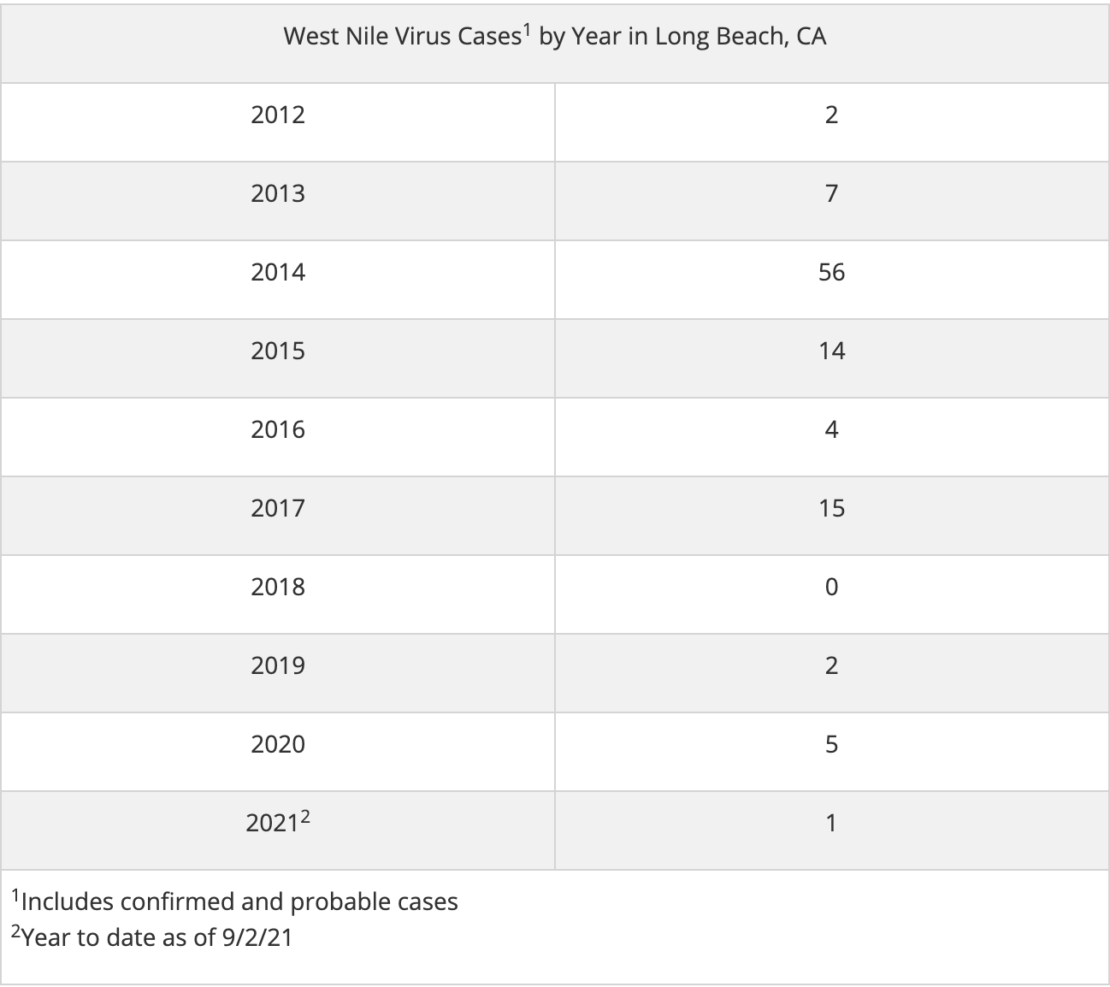A Long Beach resident in their 40s was infected with West Nile virus this week, marking the city’s first human case of the mosquito-borne virus this year, officials said Friday.
The resident was recovering at home, but Long Beach health officials warned residents to be mindful of mosquitos potentially carrying the virus now that they know it’s present in the city.
“As we approach Labor Day weekend enjoyment, this is an important reminder for people to continue to take steps to avoid mosquito bites,” City Health Officer Dr. Anissa Davis said in a statement. “Everyone needs to take steps to prevent mosquito-borne diseases.”
West Nile virus is most commonly spread to humans by infected mosquitoes. While most people show no symptoms, it can cause fever, body aches, rash, nausea, vomiting and headache. In rare cases—about one in 150—patients suffer more serious symptoms such as brain inflammation or paralysis.
West Nile cases have been relatively low in recent years, according to data from the city.

There have been 32 human cases of West Nile reported across the entire state so far this year—five of which were in Los Angeles County, according to Long Beach.
In a news release, city officials said residents can help combat the disease by taking the following precautions:
- Prevent mosquito bites by applying insect repellent with EPA-registered active ingredients DEET, picaridin, IR3535, or lemon eucalyptus before you go outside
- Wear long-sleeved shirts and long pants if spending time outside during dawn and dusk. WNV-carrying mosquitoes are most active during those times
- Install or repair door and window screens
- Dump and drain standing water around your home
- Report mosquitoes and learn more about mosquito prevention by visiting www.longbeach.gov/mosquitoes
- Report dead birds online or call 877-WNV-BIRD (968-2473)

